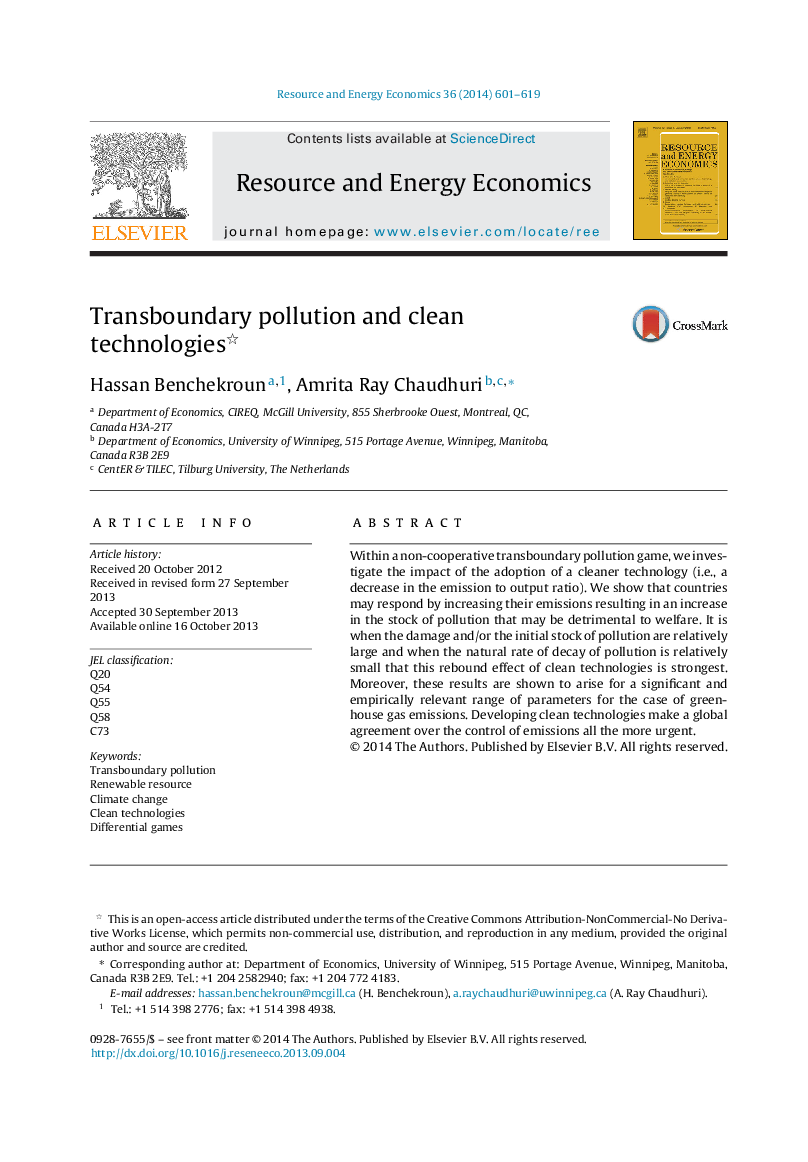| Article ID | Journal | Published Year | Pages | File Type |
|---|---|---|---|---|
| 10483327 | Resource and Energy Economics | 2014 | 19 Pages |
Abstract
Within a non-cooperative transboundary pollution game, we investigate the impact of the adoption of a cleaner technology (i.e., a decrease in the emission to output ratio). We show that countries may respond by increasing their emissions resulting in an increase in the stock of pollution that may be detrimental to welfare. It is when the damage and/or the initial stock of pollution are relatively large and when the natural rate of decay of pollution is relatively small that this rebound effect of clean technologies is strongest. Moreover, these results are shown to arise for a significant and empirically relevant range of parameters for the case of greenhouse gas emissions. Developing clean technologies make a global agreement over the control of emissions all the more urgent.
Keywords
Related Topics
Physical Sciences and Engineering
Energy
Energy (General)
Authors
Hassan Benchekroun, Amrita Ray Chaudhuri,
